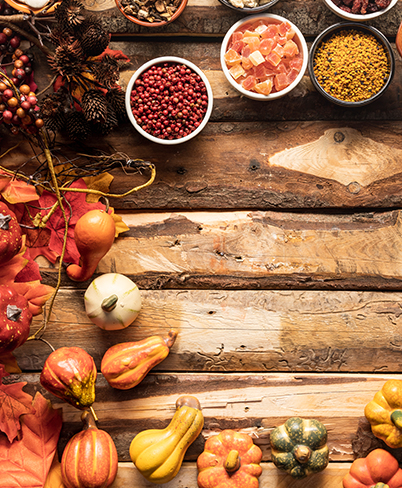
DIET & LIFESTYLE
DISCOVER HOW TO HEAL
     6 ratings, 221 likes 6 ratings, 221 likes
Customer Reviews4.33 out of 5 stars     Sign in to review this article Sign in to review this article"Thank you for this site. I refer to it everyday, several times. A wealth of information. So grateful to you for..." -       Are you Anabolic (Kapha Dosha)?Tell your friends your Ayurvedic body type. Help them discover you and your unique personality by sharing your Ayurvedic constitution on one of these sites below.What is Kapha (Anabolic Body Type)?Kapha dosha is characterized by growth of tissue. Hence it is anabolic. Kapha people tend to produce more mucus and fat, and retain more fluids. Kapha body type is the stable, relaxed dosha defined by Oily, Cold, Heavy, Dull, Gooey, Soft, and Stable biocharacteristics. Kapha dosha tends to consolidate, solidify, and is dense in nature. Kapha is composed of mostly water and earth element. Kapha signs tend to be more white in color have a heightened sense of taste and smell. Kapha body type tends towards square features and a denser build accompanying bright, big eyes and thick, luscious hair.What is Kapha Like?When Kapha dosha is in balance, a person is loving, dependable, nurturing, and loyal. Kapha folks provide stability and affection in relationships. They make great listeners and great homemakers. Of all the doshas, they have the greatest stamina and immunity. Their bodies are as solid as their wills. A Kapha imbalance can cause a person to become stubborn, depressed, tired, and possessive. They easily tend toward weight gain, stagnation, and congestion. They also need to be mindful to move daily and to challenge what is comfortable by being a little more adventurous. Kapha does best on a diet of lighter foods like green vegetables and legumes. They should avoid sweets, oversleeping, and withdrawing from the world.Common Kapha Characteristics
Common Kapha Symptoms
Common Kapha Diseases

How to Balance KaphaAvoid These Foods
Avoid Food With These Qualities







Kapha Times of DayAccording to the Ayurvedic clock, Kapha happens in the beginning of life, the year, the day, the night, and digestion. Kapha is thus naturally increased during the following times: Childhood - Children are renowned for colds, congestion, and mucus. Children love to sleep late and eat sweet, heavy foods. They love to play and hate to work. They are loving and innocent. Late winter and spring - During winter, Kapha fat rises to protect the body from coldness, driving the heat of the body inward. As the sun heats the air in late winter, the body sheds the layer of protective fat, releasing Kapha into the bloodstream. Melting Kapha is the Ayurvedic cause of hay fever congestion. After sunrise and sunset - For the two hours after sunrise and sunset, Kapha feels relaxed. Kapha people will enjoy staying in bed past sunrise and feel after dinner laziness. If Kapha is high, there will be congestion during these times. First two hours after a meal - After eating, the body feels calm and content due to rising blood sugar levels, which is Kapha. Congestion also increases immediately after eating unless the food is spicy. Kapha SitesStomach - Mucus buildup in the stomach from slow digestion is the root of increased Kapha throughout the body. Mouth - Many Kapha individuals experience strong food cravings. Kapha people lack the metabolism to process strong emotions and tend to suppress emotions and agitation with food. Lymph - Kapha people have high blood sugar and cholesterol levels in the blood, leading to the slimy and oily quality clogging the blood vessels. Poor circulation deprives extremities of oxygen, leading to cold hands and feet. Slimy and oily quality manifest topically on the skin. Lungs, Throat, Sinsuses, and Nose - Excess water and hyperglycemia lead to a thick layer of mucus in the lungs and GI tract. The result is congestion and improper circulation of lymph. Thick mucus reduces absorption of oxygen in the lungs. To compensate, the body lowers metabolism (low thyroid) and Kapha becomes psychologically overwhelmed and depressed. To balance, dry the body and avoid heavy guna and sweet taste. Favor bitter and pungent. Breasts - Kapha in the lymphatic system leads to larger breasts and stagnation of lymph in mastic tissue. The breasts may be lumpy. Pancreas - The combination of hyperglycemia and anoxia lead to insulin resistance in the cells, eventually wearing out the pancreas and causing diabetes. Mind - Sugary blood and and good absorption makes Kapha content and peaceful. When the blood is too thick, circulation is affected and the mind becomes dull and depressed. READ MORE ON THIS TOPIC
BROWSE SIMILAR ARTICLES BY TOPIC

About the Author John Immel, the founder of Joyful Belly, teaches people how to have a healthy diet and lifestyle with Ayurveda biocharacteristics. His approach to Ayurveda is clinical, yet exudes an ease which many find enjoyable and insightful. John also directs Joyful Belly's School of Ayurveda, offering professional clinical training in Ayurveda for over 15 years.John's interest in Ayurveda and specialization in digestive tract pathology was inspired by a complex digestive disorder acquired from years of international travel, as well as public service work in South Asia. John's commitment to the detailed study of digestive disorders reflects his zeal to get down to the roots of the problem. His hope and belief in the capacity of each & every client to improve their quality of life is nothing short of a personal passion. John's creativity in the kitchen and delight in cooking for others comes from his family oriented upbringing. In addition to his certification in Ayurveda, John holds a bachelor's degree in mathematics from Harvard University. John enjoys sharing Ayurveda within the context of his Catholic roots, and finds Ayurveda gives him an opportunity to participate in the healing mission of the Church. Jesus expressed God's love by feeding and healing the sick. That kindness is the fundamental ministry of Ayurveda as well. Outside of work, John enjoys spending time with his wife and 7 kids, and pursuing his love of theology, philosophy, and language. STUDY AYURVEDA
Questions, Comments & Impressions of 'kapha dosha: how to keep it balanced & energized'?Is there something else you'd like to know about 'kapha dosha: how to keep it balanced & energized'?     (4.33 out of 5 stars) 6 ratings, 221 likes (4.33 out of 5 stars) 6 ratings, 221 likes     Sign in to review this article Sign in to review this article
yes, people are always a mixture of all three, but usually one is predominant.
I've been told by a highly respected Ayurvedic practitioner that I have the unusual situation of having a dual dosha: both Vata and Kapha, approximately 50% of each. What recommendations exist for such a case? It would seem I have conflicting ways of using energy. How should I proceed with optimizing lifestyle, nutrition, and so on?
Generally, when Kapha and Vata are imbalanced, treat Vata in the lifestyle and Kapha in the diet.
A vata pacifying lifestyle is slow-paced and comfortable. Wear plenty of clothing to keep your body warm. Above all, keep a good routine: go to bed the same time each night, and avoid skipping meals unless you're not hungry.
Great question Maya - here's how to use the lists: instead of limiting your foods, try to understand why the food is on the list. It may be that although a food aggravates Kapha due to Gooey quality, your Kapha is balanced enough to accommodate the Gooeyness. For tri-doshic individuals, it is generally best to use imbalanced gunas and tastes, instead of dosha, to guide your way. Hope this helps.
Everything is sooo me!
Really good info. I'm always asking "why?" And this information tells you the why of things not just the what. It helps me to understand better. Thank you! Question: in the poop section, why does it say that it is recommended Kapha decrease # BM's to less than 1-2 times a day? That doesn't make sense since it also says that Ayurveda says this is ideal? Am I misunderstandng this? Thx!
There are varying opinions on which foods are best for Kapha. In general, wheat, dairy and sugar should be avoided. You might try rice milk over almond milk.
I'm a beginner, full of wonderment and questions... a lot of information to take in.
We're so glad you're here! Take it slow and enjoy the journey.
Thank you for this site. I refer to it everyday, several times. A wealth of information. So grateful to you for providing it. Namast�
Thank you for your feedback!
What does anabolic means compare to metabolic
Anabolic means building - something that nourished the body and helps it grow. Metabolic refers to converting food into energy to fuel the body's activities.
Ingredients that would be Kapha aggravating if taken alone can be prepared in such a way that makes them Kapha pacifying. This is part of the art of Ayurvedic cooking.
|
Join Joyful Belly.
Want our top Ayurvedic recipes and health tips?Subscribe to our free newsletter!


 SAVE ARTICLE
SAVE ARTICLE

 On MeWe
On MeWe On Pinterest
On Pinterest On Facebook
On Facebook On Twitter
On Twitter On WhatsApp
On WhatsApp On Email
On Email










